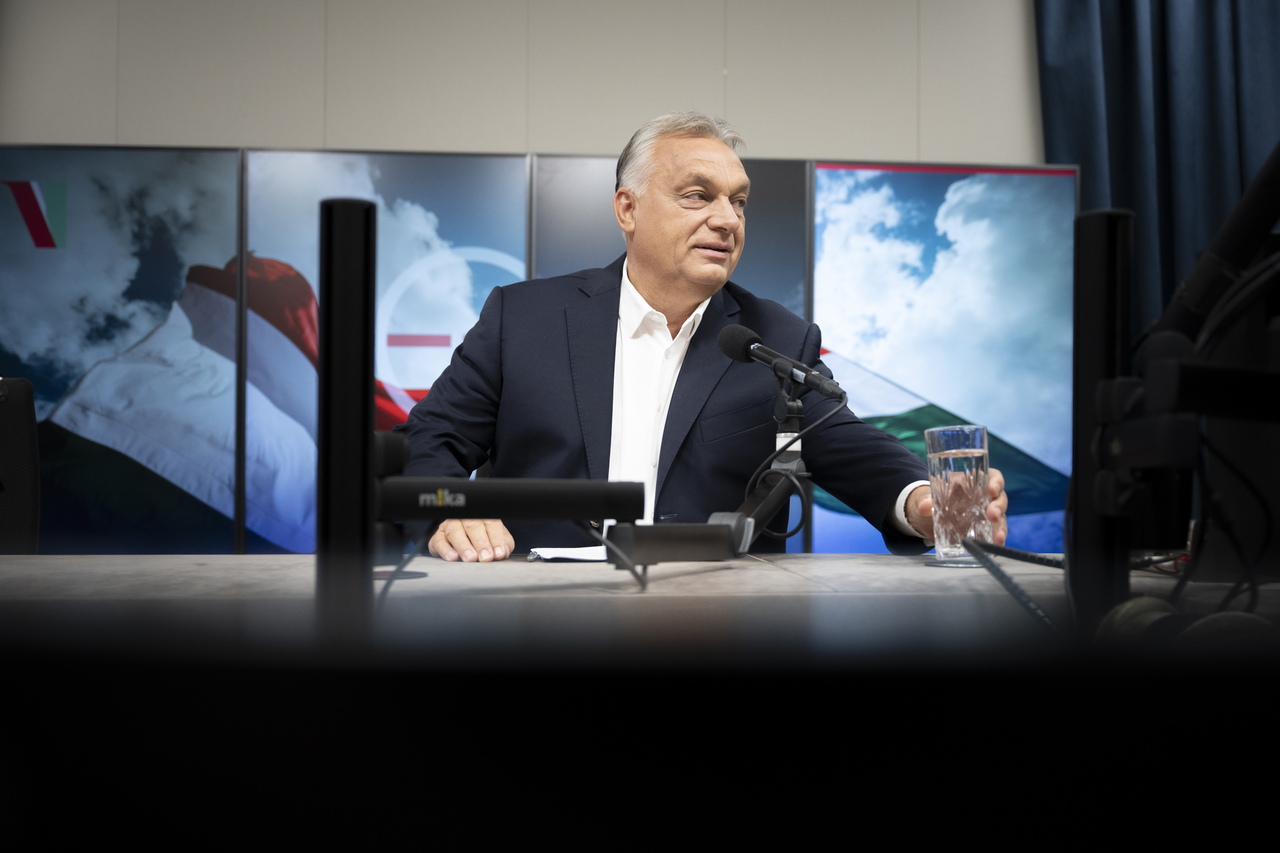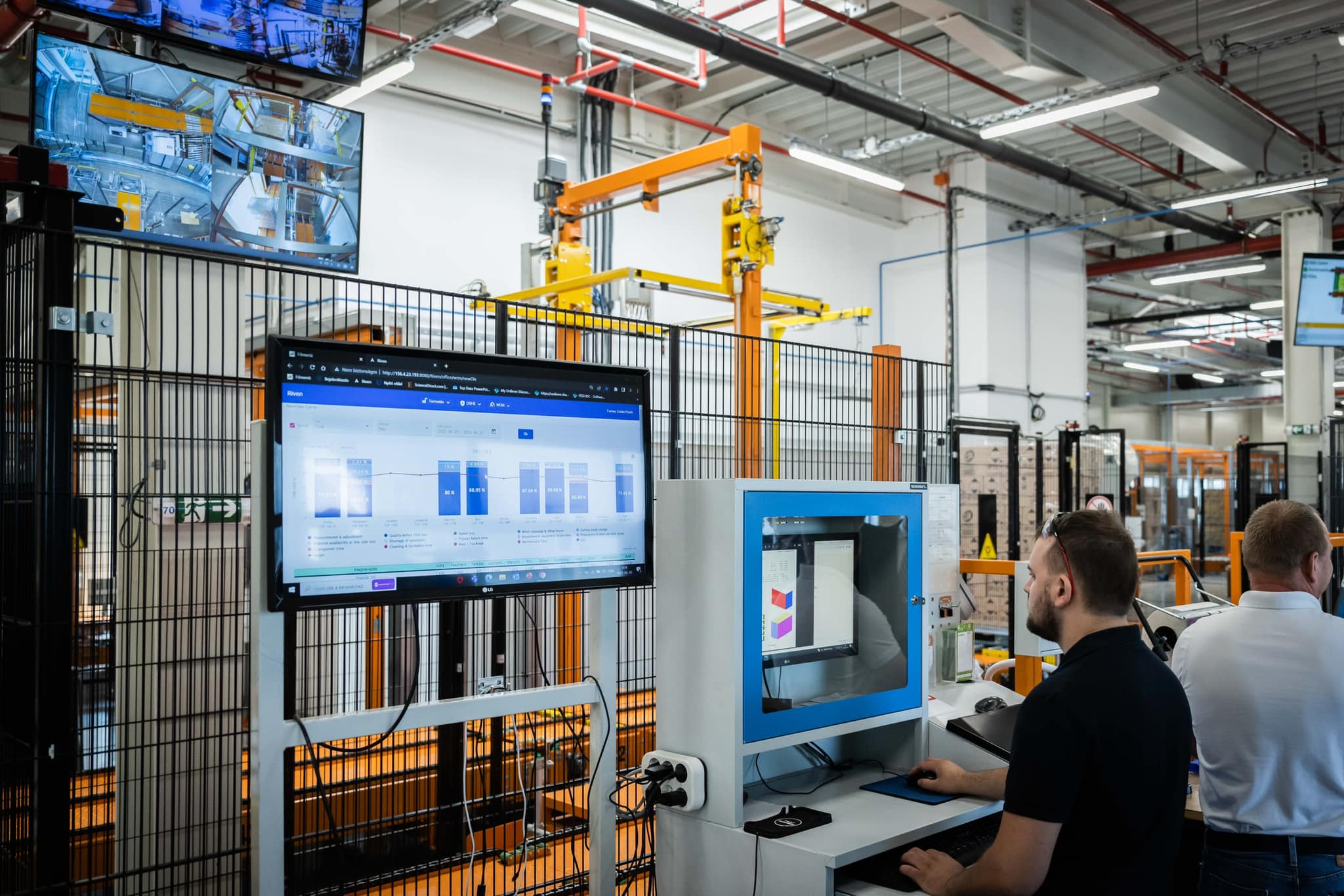Will PM Orbán’s plan give “big boost” to the Hungarian economy?
Prime Minister Viktor Orbán said there was “little chance” of addressing the decline in competitiveness at the European Union level and the focus should be on the national level in a weekly interview with public radio on Friday. He believes his plan would give a “big boost” to the Hungarian economy.
“Our positions are very far apart, which is why Hungary has to focus on itself, not Europe,” Orbán said on Kossuth Rádió. He added that the response to Hungary’s presentation of its programme for the presidency of the Council of the European Union in the European Parliament during the week had been a “diversion” and the government had weighed matters related to the Hungarian economy for weeks.
The government has drafted a big action plan that will give new impetus to the Hungarian economy, he said. The economic cabinet discussed the plan, which includes measures supporting affordable housing, higher wages and advancing SMES, on Thursday, he added.
He said the plan would give a “big boost” to the Hungarian economy, adding that the housing measures would produce a “housing boom”. He said those measures included dormitory construction and steps to make affordable housing available to young Hungarians, including rental constructions. The government will support home construction in Hungary’s smallest settlements in the framework of the Hungarian Village programme, while eliminating bureaucratic obstacles to using savings for home purchases, he added.

HUF 1m/month wage realistic
He said talks between employers and unions on the minimum wage were “progressing well” and an agreement on the scale of the minimum wage increase was within reach. He said that aiming to boost the average wage in Hungary to HUF 1m a month was “not unrealistic”.
He affirmed government plans to roll out credit for young blue collar workers similar to student loans.
He said assistance for SMES, in the framework of a programme named after the late business magnate Sandor Demjan, would include access to equity financing and preferential credit and aimed to make SMEs more stable and bigger.
Orbán said financing for the measures would have to come from Hungary’s own economic growth, while fiscal deficit and state debt levels continued to decline.

He said September consumption data was “encouraging”, along with real wage growth of close to 10pc, “unmatched in Europe”. He said the debate over sluggish consumption, even amid high real wage growth, was “not healthy”, as it was up to Hungarians to decide what they wanted to do with their money.
He said the real problem was the slowdown in the European automotive industry, which impacted Hungary as an “automotive industry giant” and home to plants of all three premium German car makers.
We will accept from the West and from the East only that which benefits Hungarians
“It doesn’t matter what Europe says, we will stick to our policy of economic neutrality. We will accept from the West and from the East only that which benefits Hungarians, while we will reject that which is against our interests,” he added.
Orbán said that policy could boost GDP growth to 3-6pc, with tangible results already in 2025. He put GDP growth in the last two quarters of 2024 “somewhere between 1 and 2 percent”, but said there would be a “huge pickup” starting in the first half of 2025. Hungary’s long-term economic outlook is “bright”, he added.
Orbán said adapting to global changes had made a new Hungarian economic policy necessary, adding that a new pact on that policy had to be made with Hungarians.
He said the economy minister had presented the “trends, numbers and general concept” for the plan on Thursday. A government resolution will assign tasks related to the policy, and concrete measures could be unveiled in 2-3 weeks, he added.
The government needs to consult with interest groups, economic players and “ultimately with the people” on those measures, he said.
Minister presses for improved EU competitiveness at SME level
The European Union’s competitiveness needs to be strengthened at the SME level, too, Justice Minister Bence Tuzson said ahead of a meeting of the Justice and Home Affairs Council in Luxembourg on Friday. Tuzson noted that strengthening competitiveness was a priority of Hungary’s presidency of the Council of the EU. He said ministers at the meeting would discuss ways to streamline EU regulations to make them more transparent for SMEs. Priorities of the Hungarian presidency also include countering racism and anti-Semitism, he said, adding that the “firmest steps possible” had to be taken.
Also on the agenda of the meeting are EU drugs policy and the fight against organised crime, he said. Following the meeting, at a joint press conference with Didier Reynders, the European commissioner for justice, Tuzson said the ministers had weighed ways the EU’s legal system could be used to strengthen member states’ competitiveness. “EU competitiveness is not just about economic matters, but legal issues, too,” he added.
He said tools needed to be found that could strengthen the legal position of vulnerable SMEs, the “backbone” of economic life and job creation in the EU, and ease their access to legal recourse. He pointed to the importance of member states’ cooperation in the fight against drugs and organised crime. He called anti-Semitism “extremely dangerous” and noted that Hungary had a “zero tolerance” policy for anti-Semitism. The ministers discussed ways to take common steps against anti-Semitism and racism by exchanging information and adopting best practices, he added.
The war in Ukraine was also discussed, he said. Reynders said ways to hold accountable people who had committed atrocities were being considered, including the establishment of an international court.
Read also:

